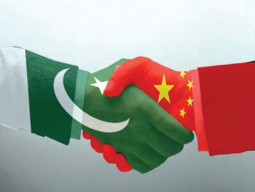
Prime Minister Imran Khan was elected to power last year on an anti-corruption platform and vowed to bring home billions of dollars in money stashed abroad, but progress has been slow and sceptics doubt any serious money can be recovered.
The Royal United Services Institute (RUSI) think-tank said Pakistan should focus on preventing corrupt money escaping the country in the first place, and urged focus on anti-money laundering measures by banks and money transfer firms operating in a largely cash-based economy.
New cash transfer system for overseas Pakistanis soon
Pakistan has for years faced international pressure to tighten regulation of its financial sector to prevent terrorism financing, a key issue for Western powers who have piled pressure on Islamabad over this issue.
"(Khan's) apparent desire to address the illicit financial activity ... offers an important opportunity for both those within and outside the country to drive up the integrity of Pakistan's financial system," the institute said in a report.
Pakistan is battling to improve its regulation to avert being blacklisted by the global financial body, the Financial Action Task Force (FATF), in what could be a bitter blow to an economy already beset by a weakening currency, rising inflation and slower growth.
The report's authors said the State Bank of Pakistan (SBP), should push banks to improve anti-money laundering systems and information sharing across the sector.
"So far, the SBP's prescriptive supervision style has succeeded in bringing (anti-money laundering) to the attention of banks but has not necessarily encouraged banks to develop a solid understanding of red flags and risk factors related to proceeds of crime, including corruption," they said.
FIA books two money-changers, seize foreign currency
Pakistan should sharpen its focus on the money exchange and transfer companies, especially hawala money transfer businesses that work under a system that allows customers to rapidly move large sums across borders outside the scrutiny of regulators.
The trust-based money transfer system has long been the banking system of choice for many people in Pakistan, but many businesses are unregulated and once the money has left Pakistan it is hard to keep track of it.
US and other Western nations say hawala companies are used to transfer funds for both militant groups and drug traffickers.
The institute urged the central bank to "promote awareness among banks of red flags and risk indicators related to possibly illegitimate activities of registered exchange companies and activities of unlicensed hawala ... operators."
1732503274-0/Untitled-design-(43)1732503274-0-405x300.webp)
1732501636-0/Untitled-design-(42)1732501636-0-165x106.webp)

1732498967-0/Outer-Banks--(1)1732498967-0-165x106.webp)
1732086766-0/BeFunky-collage-(74)1732086766-0-165x106.webp)












COMMENTS
Comments are moderated and generally will be posted if they are on-topic and not abusive.
For more information, please see our Comments FAQ